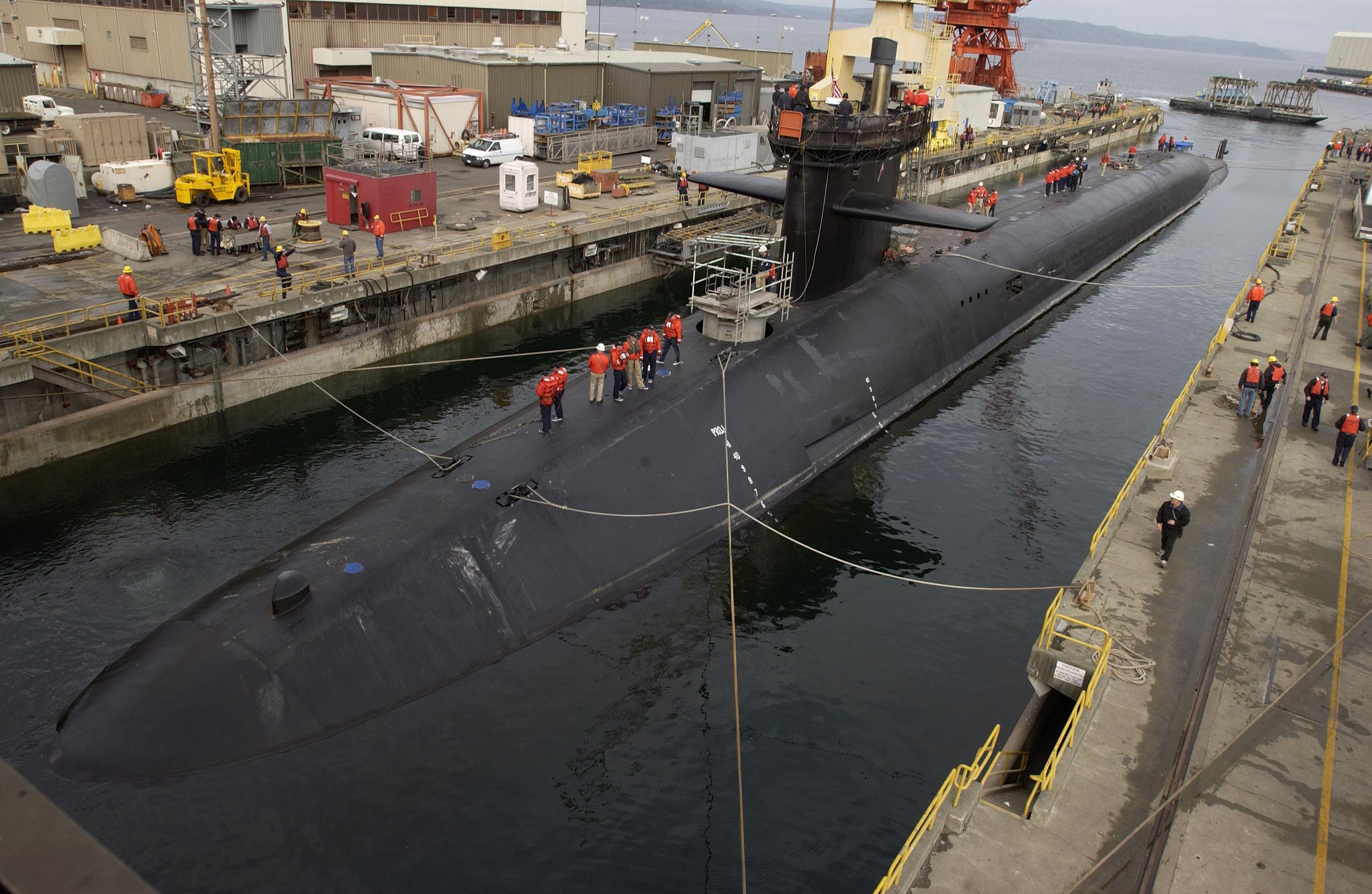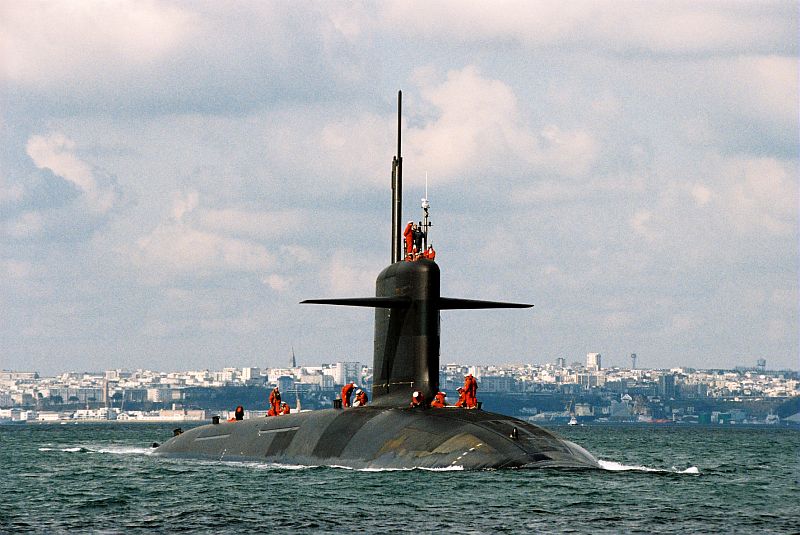Op-Ed By Amit Gupta, USAF Air War College
The recent AUKUS deal which will allow Canberra to purchase American nuclear submarines has led to the cancellation of a 90 billion AUD deal with France and generated considerable anger in Paris.
World’s Two Heavy-Duty Fighter Jets – Su-30MKI & F-15 Eagle – Prepare For ‘Aerial Faceoff’ Later This Year?
The other capital with mixed feelings over the AUKUS deal is New Delhi which is happy since the deal is a slap in the face of China but, at the same time, the Indians have some regrets that Washington never considered them worthy enough allies to receive a nuclear submarine.
India has leased an Akula sub from the Russians and is reportedly getting one more even as it seeks to build up its own indigenously produced nuclear submarine force. Yet the Russian subs come at a price; they cannot be used to launch nuclear weapons.
On the other hand, the indigenous force has met with the typical problems exhibited by Indian domestic weapons production—delays, cost overruns, and questions from the user about the quality of the end product.
Thus, New Delhi should try and get the best outcome possible and start talking with France about procuring French nuclear submarines. There are compelling reasons to do so.
Why India Should Talk To France
First, India is unlikely to get American nuclear submarines. American concerns about technology security in India remain and while significant progress has happened in this area over the last decade, residual worries exist. Washington, therefore, is not going to transfer such sensitive technology to India.
Secondly, the Australians are getting nuclear submarines since they are viewed as loyal and steadfast allies. India remains a partner with whom the US has major differences.
Thirdly, Australia has invested heavily in American technology and this makes interoperability between the US and Australian navies almost seamless as Australian officers can work on American vessels.
India is a long way from being able to do so and by one estimate it may take as much as $100 billion to bring the Indian military to be fully interoperable with the American forces.

Fourthly, the Australians are getting nuclear subs but have not been given permission to put nuclear weapons on them. Nor are the Australians willing to set aside their own public’s concern about nuclear weapons.
Even if American subs were available to New Delhi, therefore, they would not give India the nuclear launch capability it seeks to ensure a second-strike capability against China.
Fifthly, it is in the interest of the western alliance to enhance India’s naval capabilities since New Delhi is now an enthusiastic member of the Quadrilateral Security Dialogue (QUAD) and wants to play a more proactive role in deterring Chinese military forays in the Indo-Pacific.
As things stand, India’s naval nuclear deterrent is not credible since the Russian Akula cannot be armed with nuclear weapons and the indigenously produced Arihant is noisy and as Frank O’Donnell has pointed out, it is not an operational submarine but a technology demonstrator.
It is not clear, for example, if nuclear-tipped missiles can be launched from a submerged Arihant or whether it has a link with Indian space-based assets to permit the accurate targeting of an opponent’s sea and land-based assets.
The French Connection
In contrast, the French have a long history of building nuclear submarines and in the past have allowed India to arm French weapons systems with nuclear warheads. After France left NATO, its policymakers created the Force de Frappe which ensured Paris had a credible naval second-strike capability—France now has submarines with 16 missile tubes which is more than adequate for a significant nuclear deterrent.
Each missile reportedly has three nuclear warheads making a submarine capable of launching 48 nuclear weapons.
Further, the French have not only been reliable suppliers to India, not threatening to cut off the supply of spare parts in a conflict, but they have allowed India to arm the Mirage 2000 with nuclear bombs. In fact, one of the reasons for buying the Rafale fighter from France was that Paris would allow the plane to be used for strategic missions.
India’s current plan is to build French conventional submarines but the current thinking in global naval circles is that the US Navy has always had this right and nuclear submarines are both more versatile and more lethal than their conventional counterparts.

France will be willing to sell these boats since the taboo on transferring nuclear subs was removed in the 1990s when Russia leased a Charlie class nuclear submarine to India for training purposes.
Now the AUKUS deal has made the transfer of nuclear submarines an acceptable part of military partnerships and a clear statement by the western alliance that it does not violate non-proliferation laws.
France is smarting under the rejection by Australia of the conventional submarine deal and it may well be interested in providing the technology to India. Also, Paris sees itself as a player in the Indo-Pacific and such a move would strengthen its credentials as a partner in the region.
From an Indian perspective, the connection with France would have both political and military benefits. In the international system, India and France operate as neither status quo or revisionist states.
Instead, they are reformist states who while liking the overall structure of the international order want to improve their position within it. A political alliance between the two is a natural outcome of such thinking.
Militarily, India needs a rapid nuclear naval capability to deter China and to project naval power in the Indian Ocean. French nuclear submarines would achieve both objectives.
It should be pointed out that buying French subs does not mean that India will seek, or receive, French nuclear-capable missiles or nuclear technology. That would be a breach of non-proliferation laws that France would be unwilling to take.
What this gives India is an effective and proven platform that can be used to launch Indian submarine-launched missiles and cruise missiles thus exponentially increasing the lethality of the Indian Navy.
At the very least, a nuclear-powered hunter-killer submarine would better serve the Indian Navy’s interests. The question is, can the Indian and French governments think imaginatively and forge such a deal? Time will tell.
- (Amit Gupta is an Associate Professor at the USAF Air War College. The views in this piece are his and do not necessarily reflect those of the USAF or the Department of Defense.)
- Follow EurAsian Times on Google News




